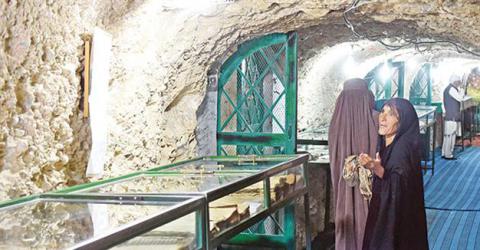Seeking a miracle on Pakistan's Qur'an mountain

A businessman is hoping to navigate the tricky business of recycling Qur'ans in Pakistan as any purported desecration of Islam's holy text could lead to the most severe of penalties Deep inside the dry, biscuit-colored mountains surrounding Pakistan's southwestern city of Quetta lies an unexpected treasure: a honeycomb of tunnels bursting with cases of Qur'ans, hidden safe from desecration.
The hill known as Jabal-e-Noor, or "Mountain of Light," has been visited by hundreds of thousands of people since two brothers turned it into a shrine for Islam's holy book, some copies of which are up to 600 years old, according to officials who run it. "We have buried at least 5 million sacks of old Korans," said Jabal-e-Noor administrator Haji Muzaffar Ali.
But the mountain's labyrinth of tunnels is steadily nearing capacity. Hundreds of sacks packed with copies of the holy book now lie exposed on the hillside as administrators struggle to create space for them.
The problem is especially thorny in Pakistan, where any disrespect to the Qur'an can inflame accusations of blasphemy, punishable by death whether by the state or at the hands of a vigilante mob.
Islam's holy text is believed by Muslims to be the word of God spoken through the Prophet Muhammad directly to mankind. For that reason the words themselves are held sacred, meaning Muslims must dispose of their old Qur'ans with great respect.
Religious scholars approve of two ways: by wrapping the book carefully in a cloth and burying it in the ground, as at Jabal-e-Noor, or placing it in flowing water so the ink is washed away from the pages.
But the man behind the mountain, affluent 77-year-old businessman Abdul Sammad Lehri, has an idea that, if...
- Log in to post comments









